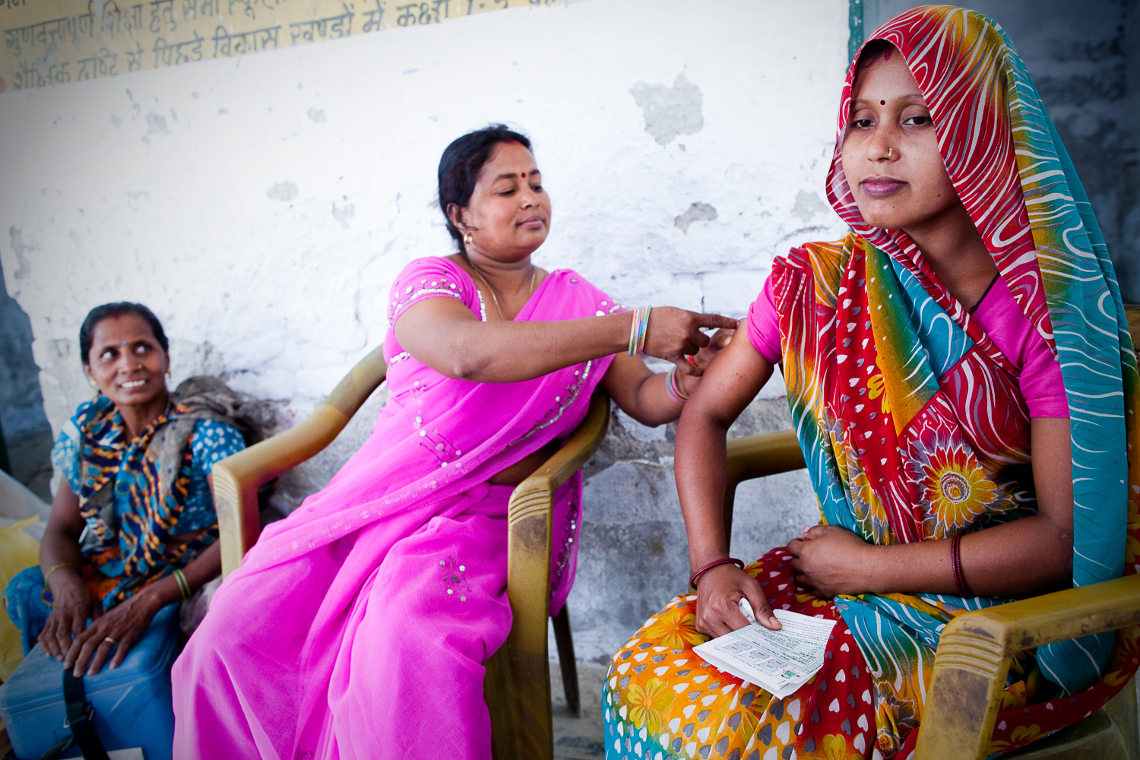GAPPS and Global Stakeholders Develop a Roadmap for Monitoring Vaccine Safety in Pregnant Women
Providing vaccinations to pregnant women around the world will help improve maternal, newborn, and child health by lowering the frequency of infections like pneumonia, which kills more than 900,000 children under 5 every year. However, while extensive work has gone into monitoring the safety of vaccines, doing so for immunization programs focused on pregnant women – particularly in low-resource settings – has been limited.
Maternal immunization is a key strategy for reducing morbidity and mortality in both newborns and pregnant women, especially in LMICs which face the greatest burden of vaccine preventable diseases and have the most limited access to health services. Vaccinating pregnant women can offer protection for the mother, the developing fetus, and the newborn through transfer of maternal antibodies across the placenta, protecting both mom and baby from vaccine-preventable lifethreatening infections.

In 2015, the Global Alliance to Prevent Prematurity and Stillbirth (GAPPS), received a grant from the Bill & Melinda Gates Foundation to establish a strategy for developing systems that monitor and track the safety of maternal immunization programs in low- and middle-income countries (LMICs). It is expected that the findings and recommendations will be beneficial to developing monitoring systems in higher-resource countries as well.
Successful implementation of vaccine research and programs in pregnant women requires accurate and prompt identification and response to potential adverse events following immunization, including monitoring infants after birth. However, many ways of tracking and reporting results are difficult to implement in LMICs, where basic health systems are generally lacking.
"There are global efforts to reduce maternal, newborn, and child mortality and morbidity due to vaccine-preventable diseases," noted Dr. Eve Lackritz, who led this project at GAPPS. "Our goal is to advance those efforts by providing a framework for tracking the safety of maternal immunization programs in low- and middle-income countries, and ultimately improve survival and health of pregnant women and their newborns."

This project examined current systems for tracking pregnancy and adverse pregnancy outcomes, with particular focus on vaccines for group B streptococcus (GBS), pertussis (whooping cough), and respiratory syncytial virus (RSV, which can cause pneumonia). A broad array of coauthors and approximately 70 stakeholders from industry, academia, regulatory agencies, governmental and nongovernmental organizations, WHO and other multilateral organizations, and the maternal, newborn, and child health (MNCH) community participated in this landscape analysis to examine existing pregnancy surveillance systems in LMICs and understand capacity, feasibility, challenges, and opportunities in implementing safety monitoring systems.
This landmark report includes an analysis of MNCH surveillance in LMICs, identifies gaps, and outlines a roadmap for program development and implementation of safety monitoring for maternal immunizations in LMICs. This landscape analysis was a catalytic process, demonstrating the breadth of efforts in this area and bringing together a range of organizations and stakeholders to develop a cohesive strategy.
Successful implementation of maternal immunization safety monitoring programs requires leadership, coordination, and the mobilization of financial and human resources at the national and international levels. Safety monitoring systems play a critical role in the adoption and implementation of new vaccines for use in pregnant women and are essential to protecting public health and advancing vaccine programs to reduce the global burden of maternal and newborn morbidity and mortality. This report provides a roadmap for moving forward for all of us who are committed to improving the health of mothers and infants. Access the full report here.
